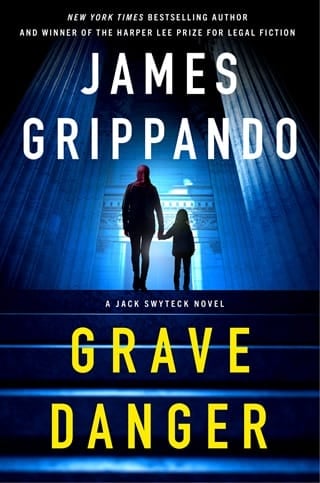4
‘Well, I think it would be lovely. Lots of young new faces in the village school. That's what this place needs.'
The views on the housing development were polarising in the post office on Monday morning.
‘Don't be daft, woman. They would be bought by people from off as Airbnbs.'
Cadi took her place in the queue with some -trepidation, wishing she hadn't come in. But it was already too late to retreat. ‘I thought that field belonged to your ex.' Maggie -Powell turned to face her. The old woman's round cheeks were pink with indignation. ‘It must have gone for millions.'
Cadi forced herself to smile. ‘The family sold the farm decades ago, Mrs Powell. Whoever put it on the market, it wasn't us. We didn't know anything about it.' She changed the subject quickly. ‘Did you know Sally's little dog Gemma is missing? Please can everyone keep their eyes open. We went for a walk in the meadow on Saturday to see what was happening. Something frightened Gemma and she ran off. She just disappeared. We spent all yesterday looking. There was a horse in the field too but that has disappeared as well, Dai said it was nothing to do with him.'
‘There have never been horses in that meadow,' Bet Evans joined in. ‘There is something in there that scares the daylights out of them. Remember?' She turned to Maggie Powell. ‘When we rode our ponies as kids, we were always told to keep out of there. Horses know, you know.'
‘Know?' Cadi was nearing the front of the queue. She reached for her purse.
‘People were killed there, in the old days.' Maggie nodded. ‘They found bones.'
‘Bones?' Cadi's mouth went dry.
‘Don't listen to her.' Bet gave her friend a punch on the shoulder. ‘Hundreds of years old, they were.'
‘But horses know.' Maggie wasn't to be deflected. ‘They can sense death. Maybe that little dog felt it too and ran away.'
‘They did some excavating.' Bet turned back to Cadi. ‘Before the war, I think it was. It wasn't just one grave, was it? There was lots of old bones.' She glanced around the post office. The queue had fallen silent, transfixed. ‘And wasn't there some kind of fancy floor they found too? Then the war came along and they covered everything up. I don't think anyone ever came back to go on with the digging...'
Her voice trailed off. Everyone in the post office was thinking the same thing. ‘I'll speak to Chris at the mill,' she said at last. ‘Maybe he ought to tell the police or someone, if it's bones. And you can tell them about the little dog as well.'
Cadi sat in the garden that night watching the moon rise behind the hills. The village was silent. The lights in Sally's cottage had gone off an hour ago. The silence had been awful since Gemma had disappeared. She hadn't been a noisy little dog– quite the reverse– but the occasional sharp bark of excitement or Sally's voice as she called her was part of the soundscape of Cadi's life.
There was a line of pale light in the northern sky. With a sigh she watched it fade. If a body had been found before the war, the chances were that was when the meadow had still belonged to David's family. Surely his cousin must know something about it. She glanced at her watch. It was too late to ring him tonight. She would call him in the morning, and in the meantime she would start thinking about the story of Elen, the daughter of Eudaf, king of the Silures, and if she was going to write a poem telling Elen's story from her point of view rather than that of the macho Roman emperor, it was time to start making some notes about the possible real-life backstory of her heroine. Wandering inside, she sat down at her desk and picked up her pen.
Elen, princess of the Silures, had waited until it was quiet that evening before slipping into her riding trousers and sturdy boots and creeping outside, her pouch stuffed with treats. Her father and her brother were preoccupied with the forthcoming visit of the commander of the troops stationed down at Isca and paid no attention as she slipped from her couch, leaving them to talk over the final course of their meal. Only her groom, Rhys, knew how often she went to visit the young horse and how much training they had done together as they practised the moves again and again in ever more complicated manoeuvres, the girl riding bareback, pivoting the animal on his haunches with just the touch of her toes, no whip, no spurs, no raised voice. Only a whisper. And only Rhys knew that, though the girl had set her heart on this horse for her very own, the horse she called Emrys, it had been promised to her brother.
‘No!' Her response to his gentle warning had been so angry the colt had thrown up its head, eyes rolling. ‘Never! That is not going to happen.'
He sighed. It was not his place to come between the children of the high king. When she went out alone into the dusk he pretended not to see.
The colt was waiting for her on the far side of the meadow, by the stream. She lured him to her with a crust of bread and talked to him gently as he snuffled up the reward before allowing her to scramble onto his back and, her hands wound firmly into his mane, kick him into a canter, riding circles on the grass, left, right, neatly drawn figures, round and round.
She never saw the strange reflection of bright lights across the field in front of the colt, never heard the cacophony of -voices, the roar of the engine as the animal reared up with a scream of fright and she flew off to land with a thud almost under the animal's hooves.
‘Are you all right?'
Elen was aware of the ring of faces looking down at her as she lay on the ground. A file of legionaries had marched up the lane from the road. They had come to an abrupt halt at the sight of her lying on the ground and three of the cavalry -officers, -riding at the head of the troop, had turned into the field, followed by two or three of the men, while the rest halted some distance away.
She scrambled to her feet. ‘You scared him!' She rounded on them furiously. ‘With your noises and your lights! Don't you know better than to terrify a horse like that? He's only young.' The colt had galloped off to the far corner of the meadow and had come to a halt staring at the group of men surrounding his rider. His rein was trailing and his coat was streaked with sweat.
The senior officer dismounted. ‘You ride well for a peasant chit. And for the record, it wasn't us that spooked him. We were riding up the lane to the king's palace. There was some kind of bright light in the field. A reflection off a polished surface.'
She felt his gaze run up and down her body, taking in her hair that had come loose from its tight plait, and her furious, mud-stained face. She grew hot with shame, self-consciously aware for the first time that she was wearing a short sturdy overtunic and loose checked trousers of the kind worn by her father's poorer tribesmen, and instead of sandals her feet were clad in sturdy boots.
‘Don't let anyone else see you riding that horse,' the officer went on sternly. ‘My guess is that animal was sired by one of the legion's Arabs. It will be worth something if you haven't maimed it.'
‘He belongs to my father,' she retorted. ‘I have every right to ride him.'
‘A likely story! Shall I catch it, sir?' One of the officer's men stood forward.
‘No, leave it. It will be safe enough.' He turned back to Elen. ‘Hop it, you! Back to the village with you.' He nodded towards the hill beyond the brook. On top, the thatched roofs of the tribal settlement were just visible behind the stone and brushwood ramparts. ‘And be glad I won't report you to your king's household.'
Elen felt another surge of incredulous fury sweep over her. How dare he talk to her like that? Her anger was swiftly replaced by relief. He thought she was a villager– and what else would he think with her roughly spun trousers, her coating of dust and her tangled hair? ‘Thank you, lord,' she said meekly, and she hid her smile behind a downcast gaze.
He grinned. He wasn't fooled. The girl had as much -spirit as the horse. He watched as she turned and walked away. She was limping, too proud to admit how much the fall had shaken her. As she moved away towards the gate, the yearling raised its head and whickered at her. It trotted towards her and -nuzzled her shoulder. With its silky black coat and the give-away dished face of a legionary Arab stallion that had been allowed to run in the hills with the sturdy native ponies, it did indeed have the makings of a fine horse. He grinned to himself again. The wild Silurian girl too had a touch of the exotic about her with her tangled curls and flashing eyes.
Octavius, high king of Britain and lord of the Silures, studied his visitor with care. The two men were alone. The -commander of the Roman armies in the province of Britannia was a -seasoned soldier, victorious after defeating the Pictish inroads into North Britain and before that, campaigns in North Africa and -Germania and Gaul. Rumour had it he was the son of the -Hispanic pro-consul, a close relative of the Emperor Theodosius himself. Though he was head of the legions of Britannia, it was no secret that he wanted more.
Flavius Magnus gave his host a frank look. ‘I want to be honest with you. The connection would suit us both. Britannia is threatened from all sides and my expected support from the emperor is so far less than helpful. I have defeated the Picts and Caledonians in the North. I expect more raids from Hibernia and we are endlessly threatened by the Saxons. If your son, heir to you as high king, with royal blood in his veins, were my son too and brought the support of the tribes of the west with him—'
Octavius scratched his chin. ‘And my guess is, it is the king of Cornwall who put this idea in your head,' he commented thoughtfully.
‘We discussed it, certainly.' Flavius Magnus did not miss a beat. ‘You are the most powerful of the kings in Britain and assuch you were elected high king as a client of Rome. It would make sense for both of us. My fortress at Isca is in your -territory—'
‘Your fortress.' The thoughtful repetition of the pronoun came with only the slightest emphasis on the first word. ‘So, tell me about your daughter.'
‘She is my only girl. Flavia Maxima is beautiful. Biddable.'
‘And her mother?'
‘Her mother is dead. Of a fever. Sadly,' he added almost as an afterthought. ‘And I have two sons by her. Victor and -Constantine.'
Octavius raised an eyebrow. ‘So, my son has little to gain from such a marriage, though you yourself gain immeasurably from being son-in-law to the high king.'
His visitor stiffened. ‘I am a relative of the Emperor -Theodosius.'
Octavius was not impressed. ‘I will consider your offer and consult with my kinsmen and advisors. And my son. It may be that he has other ideas.'
Magnus allowed himself a smile. ‘I am sure your son will do as he is told.'
‘My son is a grown man, sir. And he is already promised to another. I somehow doubt he would favour your offer, how-ever great the compliment.'
Octavius rose to his feet. After a brief hesitation the general did likewise. He saluted with a click of the heels. ‘I thank you for your hospitality.' There had been none to speak of, he had noticed. No more than an offer of a chair and the acknowledgement for the need for privacy during their exchange. ‘I have to return to my duties at Isca.'
Octavius waited until the door had closed behind his -visitor before calling for refreshments. His preferred beverage was metheglin. With a glass in his hand, he walked out into the atrium and stood staring at the fountain. The water was beginning to stutter and fail. Unless they had rain soon the channels bringing the water to the palace down from the springs on the steep hillside would cease to flow and the basin would run dry. He sighed. He had much to think about. But first he had to talk to Conan.
Flavius Magnus mounted his horse and gestured to his men to follow as he rode away from the high king's palace. He snorted. Palace indeed! It was no more than a villa, smaller than many private residences in Gaul or in his native Hispania, or Roma itself for that matter, not that he had ever been there. The king's other residence, a town house in Venta Silurum was even less impressive, a grace and favour building to appease a native ruler once Rome had acknowledged it would be wise to keep these men and their wild tribes on side. After all, this man's ancestors had lived in a round house on top of a hill. He glanced up at the fort. It still overhung the valley, an impressive and dominant position in the landscape, and he could see the conical roofs of the houses showing above the palisade, houses only there by permission of the Roman rulers of the province once the native tribe had finally and with difficulty been subdued. He took a deep breath to calm himself. He could not allow his daughter to be disparaged by some petty jumped-up Brituncullus who thought himself too good for the most senior officer of this part of the Western Empire.
His brother, Marcellinus, acting as his second in command, had ridden up alongside him. He was pointing towards the neatly fenced paddocks, paddocks that, like the entire villa complex had been part of a marching camp, donated to the -Silures two hundred years or so before. ‘The horse we saw -earlier, sir. Is it worth suggesting it might be an acceptable gift from the king?'
Had anyone overheard their conversation? Apparently not. Marcellinus did not realise that Octavius had not thought his brother worthy of a glass of wine, never mind a valuable horse.
‘Is the girl still there?' Magnus reined in his own mount, a fine chestnut stallion every bit as good as the yearling that had stopped grazing and was watching them, ears pricked.
‘No sign of her, sir.'
Magnus smiled. He doubted she was supposed to be anywhere near that horse, but she must have been brought up with them. Probably a by-blow of one of the grooms or even of a British charioteer. The Brits were good with horses, there was no denying that, and formidable in battle, which is why it wassoimportant to keep as many of these tribes pacified as possible. Octavius's tribe, the Silures, has taken long enough to subdue. Octavius. For all his ostentatiously Roman name the man was still at heart Eudaf, king of the Silures and of the neighbouring district of Ewyas. He sighed. He must not antagonise -Octavius, especially if the intelligence that had brought him down to the fortress town of Isca with a full legion of men was -correct and the Déisi from Hibernia were planning yet more raids up the River Sabrina. This was something that had to be dealt with once and for all. He had been a senior officer in the army that had pacified the northern border beyond Hadrian's Wall, an area that was once more seething with unrest, and now he needed to sort out this threat to the western shores of Britannia, the furthest outpost of the Roman Empire. His kinsman, -Theodosius, was emperor of the eastern half of the empire, but he was not the man Magnus had to deal with. In the year 330 the Emperor Constantine had decided that the empire was too large and unwieldy to be ruled by one man alone and had divided it into two. The emperor of the West, based in Rome, was -Gratian, from whom Magnus had again and again demanded more men and money to help keep his troublesome -province on the edge of the world under control. So far none was -forthcoming. -Gratian had enough to distract him with the-increasingly hostile tribal incursions into northern Gaul. For now Magnus had to rely on his own army and his own usually very efficient skills in diplomacy.
He was still absent-mindedly watching the black colt. It had moved off, heading towards the stream. He saw it striding purposefully across the meadow, its gait elegant and confident. Itstopped abruptly, staring ahead. He could see its eyes rolling and then it was away, frightened by something he couldn't see. He grinned to himself as the young horse galloped across the grass, bucking. Whatever had spooked it was on the same spot where it had thrown its girl rider. He wondered briefly what it was. Some animal? Dead or alive? Horses didn't like the smell of death. Or perhaps it was some old piece of metal glinting in the sunlight. A bronze shield, maybe, dented and discarded, from the days of the marching camp. He considered whether he should send a couple of men in to search the meadow. On the whole, he thought not. He turned his own horse's head away and raised his arm to signal the men behind him as he set off along the long straight road towards the fortress town of Isca Silurum.
 Fullepub
Fullepub 



